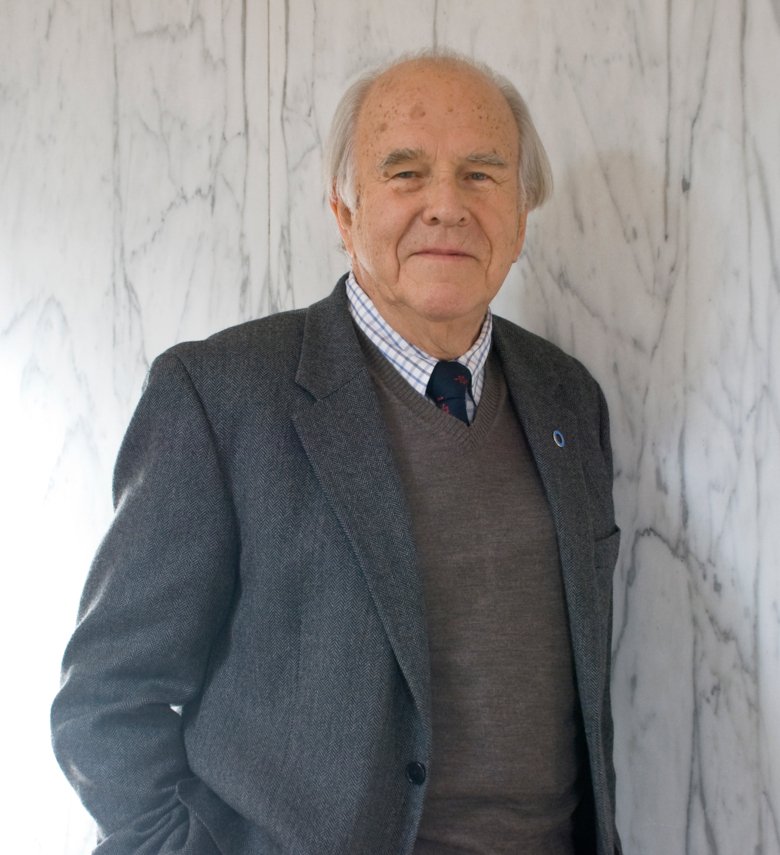In Memoriam of Dr. Franz Matschinsky 1931-2022
Announcement of the Passing of Dr. Franz Matschinsky; recipient of Rolf Luft Award 2020

Dr. Matschinsky was born in Breslau, Germany in 1931, a region that is now Poland, and moved with his family to the NordRein-Westphalia area of Germany after World War II. Franz remained in Germany through all his education; receiving a BS in Basic Medical Science from Albert Ludwig University in Freiburg, where he was introduced to preclinical medical science; and then moving to the Ludwig-Maximilian University in Munich where he received his MD in 1958, and continued on to carry out postdoctoral research in the field of ketogenesis with Professor Otto Wieland. It was during this time that Franz decided to pursue an academic career. Also, during this time, he met and married Elke Fritz, with whom he shared 57 years of happy life until her passing in late 2019.
Franz moved to the States in 1963 to continue his postdoctoral training at the Washington University in St. Louis. He quickly impressed his colleagues at Wash U, and was appointed an Assistant Professor in 1965 and rapidly promoted to Full Professor only 6 years later. While at Wash U, Franz adapted techniques of quantitative histochemistry to the study of glucose and energy metabolism in a wide variety of tissues including the retina, the cochlea and the islets of Langerhans, also known as pancreatic islets. Through this work, Franz made his seminal discovery of the enzyme glucokinase (GCK) as the primary glucose sensor in the pancreas, and started his quest to understand the role of GCK in insulin secretion and glucose homeostasis.
Dr. Matschinsky was recruited to Penn in 1978 to serve as the Director of the Penn Diabetes center, a position he held for 20 years. Franz also served as Chair of the Department of Biochemistry and Biophysics from 1984-1993. He shared his love of metabolism by teaching medical students for many years and remained an active faculty member in both the Department and in IDOM, Institute of Diabetes, Obesity and Metabolism, until his passing last week.
Throughout his forty-plus years at Penn Franz continued to study glucokinase and glucose homeostasis, fascinated by the seemingly endless crosstalk and feedback between glucose sensing, insulin and other metabolic processes and -- identifying many cellular, genetic and pharmacologic regulators of GCK. Moreover, as a tremendously collaborative scientist, Franz worked extensively with others at Penn and around the world. Most notably, with Penn colleagues Clyde Barker, Ali Naji and Nicolai Doliba, Franz pioneered physiologic chemical studies of isolated pancreatic islets from healthy and diabetic patients. Additionally, together with Charles Stanley of CHOP and Mark Magnuson of Vanderbilt, Franz elucidated biochemical and genetic mechanisms of monogenic forms of diabetes and hypoglycemia. In recent years he continued to serve a valued advisory role for Doris Stoffers, Klaus Kaestner, and the IDOM Islet Biology Core.
Dr. Matschinsky published over 300 papers over his career and received many awards, including the Solomon A. Berson Plenary Lecture IDF Medal (1988), the Elliott Proctor Joslin Medal 1992), the Banting Medal from the American Diabetes Association (1995), the Paul-Langerhans-Plakette award (1996), the Paul Lacy Medal (2011) and the Rolf Luft Award (2020).
On a personal note, as the current Chair of Biochemistry and Biophysics and the Director of IDOM, we are deeply appreciative of Franz’s mentorship. He is someone we often sought advice from, drawing on his knowledge of the history of Penn, the field of metabolism and his general wisdom. Franz was also someone who enthusiastically supported new directions, new faculty, and new science in our domains. Penn was richer for his presence among us, and he will be missed tremendously by all who knew him.
Franz’s legacy of commitment to metabolic research and education will continue at Penn, as he recently endowed an annual lecture series in honor of Otto Meyerhof (Nobel Prize in Physiology 1922, Penn Faculty 1940-1951), to promote discussion of basic science research as it relates to medicine and patient care for metabolic diseases.
Kristen Lynch and Mitch Lazar, Perelman School of Diabetes
